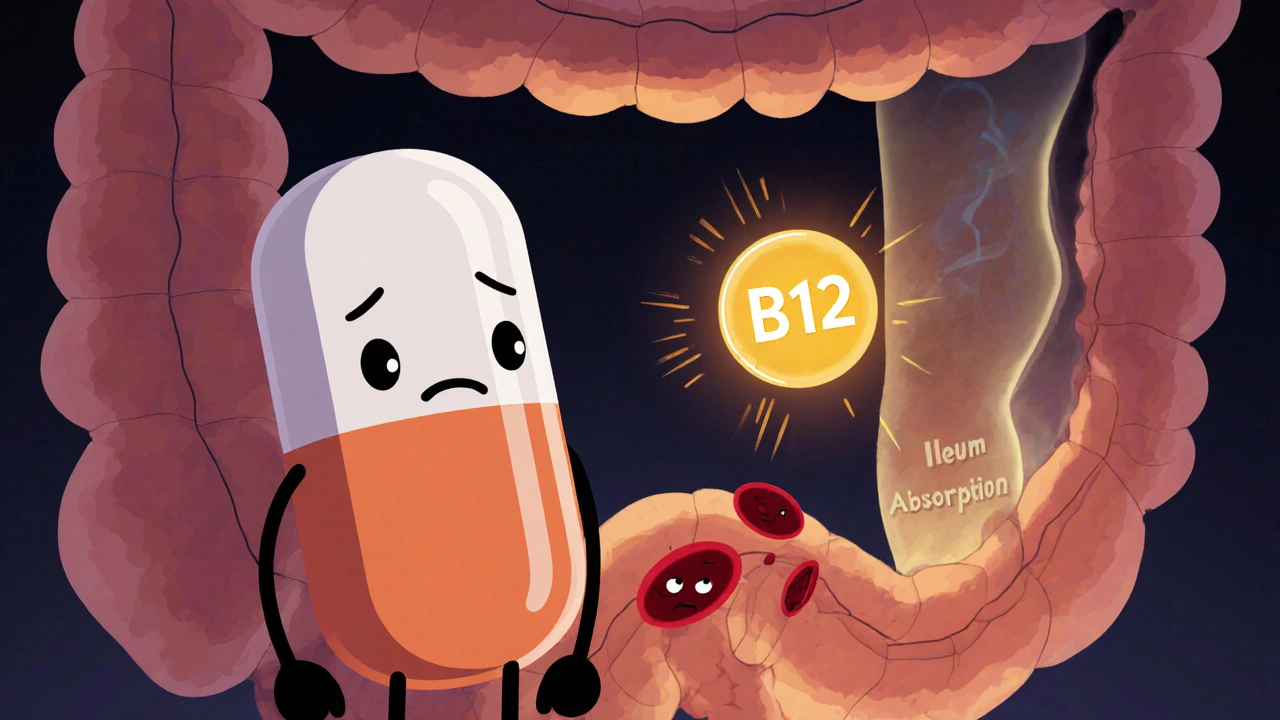Vitamin B12 Deficiency – What You Need to Know
If you’re dealing with unexplained fatigue, tingling in your hands, or a foggy mind, low vitamin B12 might be the hidden culprit. B12 is a water‑soluble vitamin that helps make red blood cells, keeps nerves working, and supports DNA production. When your body runs short, you can feel the impact fast, but the good news is it’s usually easy to correct.
Common Causes of B12 Deficiency
Most people get enough B12 from meat, fish, eggs, and dairy. Vegans and strict vegetarians often fall short because plant foods contain little of the active form. Even if you eat animal products, certain conditions can block absorption. Pernicious anemia, stomach surgeries, and chronic use of proton‑pump inhibitors or metformin can all keep B12 from getting into your bloodstream. Older adults are especially at risk because stomach acid declines with age, making it harder to release B12 from food.
How to Fix Low B12 Levels
The first step is a simple blood test that measures serum B12 or, for more accuracy, methylmalonic acid. If your numbers are low, your doctor will suggest the quickest fix: oral supplements or injections. Oral cyanocobalamin tablets are cheap and work for most people, while methylcobalamin is a more bioavailable form that some prefer. Injections are reserved for severe cases or when gut problems prevent absorption.
Dietary changes help too. Adding beef liver, clams, salmon, or fortified cereals can raise your intake quickly. If you’re vegan, look for fortified plant milks, nutritional yeast, and B12‑supplemented meat alternatives. Aim for at least 2.4 µg per day, but many clinicians recommend 500‑1000 µg weekly when treating a deficiency.
Beyond supplements, support your gut health. Probiotics, a balanced fiber intake, and avoiding unnecessary acid‑blocking drugs can improve absorption. If you’re on medication that interferes with B12, ask your doctor whether a lower dose or a different drug is possible.
Watch for symptoms to gauge progress. Energy should improve within weeks, and tingling often fades as nerves repair. If you still feel weak after a few months of treatment, follow up for repeat labs – sometimes the deficiency is tied to an underlying condition that needs separate attention.
Prevention is simple: keep a regular intake of B12‑rich foods, consider a low‑dose daily supplement if you’re older or follow a plant‑based diet, and get your levels checked every few years. Routine blood work can catch a drop before symptoms appear.
Bottom line: vitamin B12 deficiency is common, especially among vegans, seniors, and people with gut issues, but it’s also one of the easiest deficiencies to treat. A quick test, a few supplements, and some smart food choices can have you feeling sharper and more energetic in no time.

